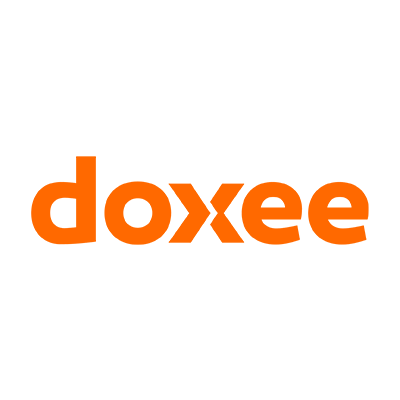In 2018, even local governments are going digital in an effort to improve communications with their citizens and make it easier for them to get information and to use public services. The local tax collection process is perhaps one of the biggest areas of opportunity for local governments to engage with citizens to ensure the timely payment of fines for things like traffic tickets.
Doxee Pvideo® offers public administrators a new way of communicating with citizens that employs the power of simple and fully personalized videos. Doxee is currently implementing several successful projects with some of the most important municipalities in Italy, but the road to personalization has just begun.
Personalized videos: a new way of communication with citizens
Since 2017, Doxee Pvideo® is the choice of many Italian municipalities who are using personalised videos as a faster and easy-to-use alternative to traditional paper documents to communicate the tax bill or other fines incurred at the municipality level.
The City of Milan is currently using Doxee personalized video in place of a traditional bill to inform citizens of their current waste tax bill. Here’s how it works: A customer receives an email that contains a short video that is personalized with the customer’s name, and the option to pay their bill in one or two instalments.
This demo (Italian) shows some of the main features of our Pvideo®, and it is a great example of the main features of our personalized videos:
- User-friendly design: Text-to-speech technology and a fully customized layout make your communications easier than ever. Our videos are designed and adapted for mobile, which is the most popular device for Pvideos (+66% views)
- Fully personalized content: Our patented technology allows our users to feature an unlimited amount of information that may be personalized to each customer.
- Embedded CTAs with live interaction: Administrations can provide a direct link to the local tax payment online portal (called “pagoPA”) where they can immediately pay their bill, and it directs them to the nearest local office based on their home address.
Citizens are also able to modify their personal data at any time from the video interface.
For the City of Milan’s campaign, 70% of recipients watch the entire video, with a 44% click-through rate for customers who choose to pay their bill directly from the video, and 19% make updates to their data.
In an interview with Corcom, Roberta Cocco, the Digital Transformation and City Services assessor of the City of Milan praised the digitalization experience and highlighted the significant increase in anticipated tax payments.
Using Pvideo as a reminder for payment resulted in €13 million in anticipated revenues for the Municipality. Given the good results, digitalized communications will be implemented in other services, and Milan will become “a hub for the innovation of Public Administration in Italy,” according to Cocco.
Other important Italian cities have achieved positive results using Doxee for personalized video. The City of Genoa adopted Pvideo® in 2017 for online waste tax payment. Again, the effectiveness of video as a communication tool was reinforced by 60% of users watching the full video, and 50% of users logging into the tax payment portal. In addition, 12% of watchers clicked directly in the video to modify data on their properties.
Personalized communications may be an opportunity for Public Administration to create a new relationship with citizens based on transparent communication and trust.
Tax collection for waste and traffic tickets is a major issue in Italy. According to CRIF ratings, 20% of these taxes go unpaid. This includes 51% of missed payments in the region of Lazio, and 4% of unpaid waste taxes in the region of Lombardy and in the North East regions. The lack of financial resources implies a generally lower quality of the service provided.
Traffic ticket payment is another application of personalized videos that can benefit public administration departments. Over the period of 2006-2016 in Italian municipalities, tickets for traffic violations increased by over +80,8%. But during that time, the percentage of paid tickets plunged by around 20%. In major cities like Naples, Rome and Turin, local tax collection is even more complex, determining rather complicated issues in terms of balance.
Why investing in local tax collection?
In Italian Law, tax collection methods are generally classified into two main categories, depending on the moment of payment. The so-called “ordinary collection” consists of all the payments a taxpayer makes voluntarily, within due dates and according to the payment methods defined by law. In Italy, bank transfer and other traditional payment methods are still accepted, though this year, with the opening of the online portal pagoPA, it is possible to make standardized payments online.
The latter is called “forced collection” and contains all the methods available to public administrators for collecting unpaid taxes. In this context, public administration, from internal agencies to outsourced local tax collection services, have multiple tools at their disposal. Currently, most of notifications are sent via mail. Digital delivery of any kind of document in PDF format is an opportunity for any institution to save money and time for communications. For this reason, digital communication should be on the agenda of public administration and local governments. It not only offers advantages for engaging with citizens, it also allows local governments a cost-effective alternative for communications.
Learn more about the use of personalized video for waste collection in Italy:









